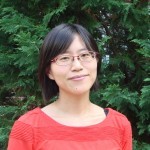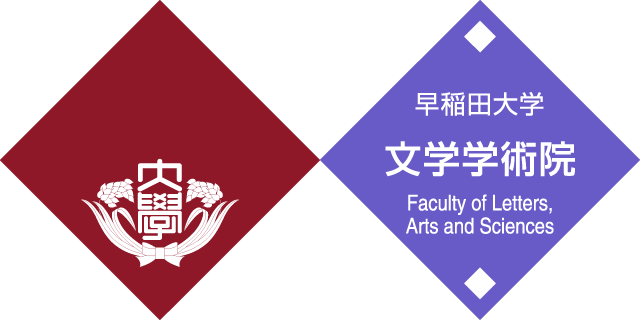- News
- 【TGU Global Japanese Studies】-Lecture-Christina S Yi (Assistant Prof. at the University of British Columbia) Linguistic Imperialism and the Aporia of Silence in “Artists of the Peninsula” and Spring on the Peninsula
【TGU Global Japanese Studies】-Lecture-Christina S Yi (Assistant Prof. at the University of British Columbia) Linguistic Imperialism and the Aporia of Silence in “Artists of the Peninsula” and Spring on the Peninsula

- Posted
- Tue, 20 Sep 2016
TGU Global Japanese Studies
A Lecture by Christina S Yi (Assistant Professor at the University of British Columbia)
Linguistic Imperialism and the Aporia of Silence in “Artists of the Peninsula” and Spring on the Peninsula
Date & Time: Thursday, October 13th, 2016 at 14:45 ~16:15
Venue: Conference Room #10, Building 33, 16th Floor,Toyama Campus, WASEDA University
Language: English (Partially Japanese)
No reservation required
Moderators : Hitomi Yoshio (Associate Professor, Waseda University) Kaori Shiono (Assistant Professor, Waseda University)
Commentator : Michael Bourdaghs (Professor, Chicago University)
Closing Remarks : Sungsi Lee (Professor, Waseda University)
Organizer : Hirokazu Toeda (Professor, Waseda University)
<Abstract>
With the launch of the Second Sino-Japanese War in 1937, Japan’s colonies saw the full-scale launch of kōminka (imperialization) policies designed to turn the colonized into loyal subjects of the emperor. This presentation explores the central role kokugo (national language) ideology played in the articulation and promotion of imperial identity during the latter years of Japan’s colonial rule, exploring how and why “Korean” literature was repositioned within a larger Japanese language canon. Although it is often understood that the kōminka movement introduced a new paradigm of the “imperial subject,” who might be included in this category varied according to class, gender, ethnicity, and place. This presentation will elaborate on this point through a close comparative analysis of Kim Sŏngmin’s 1936 novella Hantō no geijutsukatachi (Artists of the Peninsula) and its 1941 film adaptation Hantō no haru (Spring on the Peninsula; dir. Yi Pyŏng-il).
<Lecturer’s Profile>
Christina Yi is Assistant Professor of Modern Japanese Literature at the University of British Columbia. She received her Ph.D. in Modern Japanese Literature from Columbia University. Her research focuses on the rise of Japanese-language literature by Korean colonial subjects during the 1930s and 1940s and its subsequent impact on discourse regarding “national” and “ethnic minority” literature in postwar Japan and Korea. She is currently working on a book manuscript that investigates how linguistic nationalism and national identity intersect in the formation of modern literary canons in East Asia.
Sponsored by : Top Global University Project Global Japanese Studies / Faculty of Letters, Arts and Sciences / Research Institute for Letters, Arts and Sciences
Contact : Faculty of Letters, Arts and Sciences 03-5286-3526 Joko (Ms)
- Tags
- Event Reports
